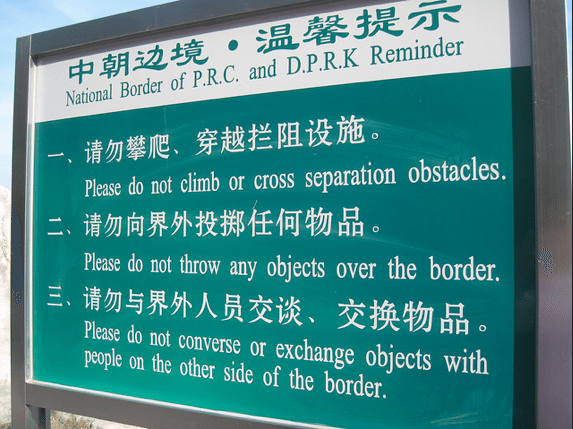It is obvious now that there are two Koreas in the world. There is another area, though, that is often referred to as the third Korea: large parts of Northeast China, near the Sino-Korean border, where much of the population is Korean. Historically speaking, the parts of Northeast China known as Manchuria were an area where the first Korean states originated. In first centuries of the Christian era, this area was the center of the mighty Koguryo kingdom, which for a long time has been seen by the Koreans as one of the progenitors of their nationhood. This even enabled some Korean nationalists in the early 1900s to lay claim to significant parts of Manchuria as ancestral lands. These claims are frequently repeated by Korean nationalists nowadays.
However, the numerous Koreans who now inhabit the area have nothing to do with the Koguryo people: While descendants of the Koguryo have remained in the area, they were completely assimilated centuries ago into the Manchus and other ethnic groups which inhabited the Manchurian plains for millennia. What present-day Koreans are there now are overwhelmingly the descendants of farmers who began to migrate to Manchuria from northern part of Korea in the 1880s.
It is obvious now that there are two Koreas in the world. There is another area, though, that is often referred to as the third Korea: large parts of Northeast China, near the Sino-Korean border, where much of the population is Korean. Historically speaking, the parts of Northeast China known as Manchuria were an area where the first Korean states originated. In first centuries of the Christian era, this area was the center of the mighty Koguryo kingdom, which for a long time has been seen by the Koreans as one of the progenitors of their nationhood. This even enabled some Korean nationalists in the early 1900s to lay claim to significant parts of Manchuria as ancestral lands. These claims are frequently repeated by Korean nationalists nowadays.
However, the numerous Koreans who now inhabit the area have nothing to do with the Koguryo people: While descendants of the Koguryo have remained in the area, they were completely assimilated centuries ago into the Manchus and other ethnic groups which inhabited the Manchurian plains for millennia. What present-day Koreans are there now are overwhelmingly the descendants of farmers who began to migrate to Manchuria from northern part of Korea in the 1880s.
Become a member for less
than $5.75 per week.
Unlimited access to all of NK News: reporting, investigations, analysis
The NK News Daily Update, an email newsletter to keep you in the loop
Searchable archive of all content, photo galleries, special columns
Contact NK News reporters with tips or requests for reporting
Get unlimited access to all NK News content, including original reporting, investigations, and analyses by our team of DPRK experts.
Subscribe now
All major cards accepted. No commitments – you can cancel any time.













